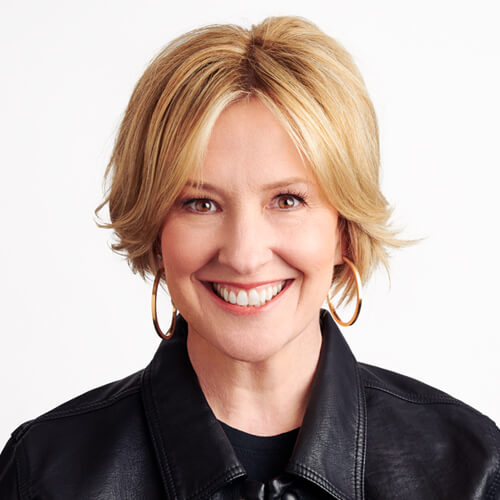The Courage to Care: Dr. Brené Brown Opens a History-Making Summit 2020
- Dr. Brené Brown, famed researcher and storyteller, was the keynote speaker for the reimagined Forrester SiriusDecisions Summit 2020
- Dr. Brown spoke to Summit attendees about how stepping up to lead in this time of crisis requires that we all call upon deep courage from within
- According to Dr. Brown, “Caring for and connecting to the people we lead is an irreducible prerequisite to effective leadership”
There are no two ways about it — even though 2020 brought with it a need for a totally reimagined event, when the virtual Forrester SiriusDecisions Summit 2020 experience officially kicked off on May 4, the tremendous spirit that propels this unparalleled event was very much alive, well, and ready to interact! 
And in these tremendously challenging times, Summit, an event that is start-to-finish devoted to connection and helping one another grow and succeed, featured the most timely guest keynote speaker in its storied 15-year history — Dr. Brené Brown, a leading expert in the study of human connection and noted researcher in humans’ ability and desire to empathize, belong, and love.
With her trademark open, honest, and shoot-from-the-hip advice, Dr. Brown spoke to Summit attendees about how stepping up to lead in this time of crisis requires that we all call upon deep courage from within. “When we’re in fear, there is a human part of us that works to override our cognitive reasoning,” said Dr. Brown, who also shared she continues to devote two-and-a-half days a week to research. “To people who are producing and consuming research right now, I would say, be watchful for the human part of us that is looking for things that are not true to make us feel better.”
Dr. Brown went on to describe the Stockdale Paradox, inspired by Admiral Jim Stockdale, the highest-ranking officer imprisoned in the infamous “Hanoi Hilton,” who endured horrific torture during his time spent in prison camp and maintained that he emerged a much stronger person. He helped other prisoners of war survive and stay spiritually and physically fit. When he was later interviewed, he shared that, shockingly, it was the optimists among the prisoners who died first. Dr. Brown used Admiral Stockdale’s experience as a springboard to introduce her belief in “gritty facts, gritty faith.” Although we should never lose faith that things will be better, we must also never play down or ignore real, gritty, true facts and data about a situation that we are in. “It is about where we are as businesses, who we are, and how we survive,” she said. “We must have the deepest faith, the deepest shared values, and be relentless in our analyzing of data.”
Marisa Kopec, Forrester SiriusDecisions senior vice president of research product management, led the discussion with Dr. Brown and asked a very interesting question: Is there room for love — caring for others —in the corporate world? In reply, Dr. Brown talked about her time spent researching her latest book, Dare to Lead, the culmination of a seven-year study on courage and leadership, where she interviewed leaders about the future of leadership. Although the sample set was diverse and featured participants who were executives across every industry and geography, they all surprisingly had the same answer: We must have braver leaders and more courageous cultures.
“Courage is a gauzy word,” Dr. Brown admitted. So, she flipped the question around and asked the panel what corporate culture looked like in the absence of brave leaders. And that’s when she learned that her hypothesis, in her words, was “shot to hell.” “I thought the greatest barrier to courageous leadership was fear. I was wrong!” she laughed.
Instead, she shared, the greatest barrier to courageous leadership is armor and self-protection. “The reason why we don’t see genuine care and connection in corporate culture is because leaders are too riddled with armor: ‘Who am I supposed to be? Who am I supposed to act like?’ We are so armored up that we can’t express genuine care for people,” she said.
“Caring for and connecting to the people we lead is an irreducible prerequisite to effective leadership,” she continued. “If you can’t do that for people — move them out of your direct line.”
Dr. Brown went on to speak to Summit attendees about how in times of change, the people who survive are those who do not act on the impulse to self-protect and resist change. “Pure gold is the person who has organizational history and context, great experience, and is willing to make their skills transferrable and learn new things — that is the change unicorn,” she said.
Acknowledging our unprecedented times and the need for business everywhere to lean into the discomfort of having to pivot, Dr. Brown shared how as things began to change as a result of the COVID-19 crisis response, she instituted a two-word check-in with her team. After hearing answers such as “overwhelmed and sad” or “scared and vulnerable,” she knew how increasingly important it is to give people a safe space to speak.
“Know the emotional landscape of your team,” she said. “That is leading. If you want them to make a contribution with their whole selves, then you have to be a whole person. You have to think of thanking, believing, and feeling as a three-legged stool.”
“If you don’t know how to attend to fears and feelings,” Dr. Brown said point blank, “skill up.”
So, after our truly incredible first day of Summit 2020, I have to ask — what’s your two-word check-in?
Here are mine: inspired and hopeful.
We’re so glad you are with us for the Summit 2020 live virtual experience, which continues through May 7. Stay tuned for more learning, connecting, and highlights (plus a few surprises!) from this one-of-a-kind, reimagined event!